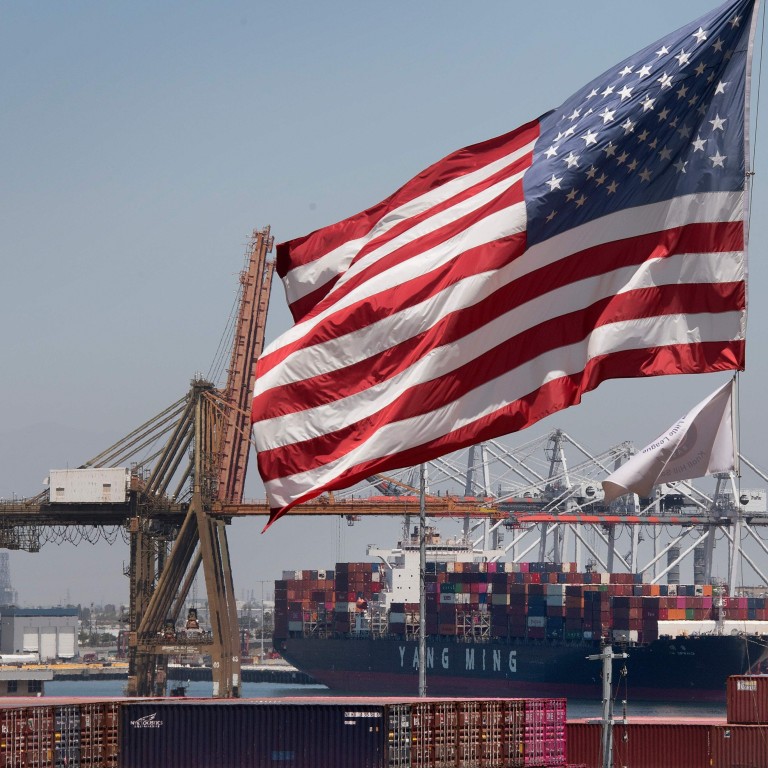
Mergers and acquisitions will pick up in coming years as supply chains scramble to recalibrate after US-China trade war
- Of deal makers surveyed, 77 per cent expect tariffs, other trade barriers to fuel future mergers, according to Baker Tilly International and Mergermarket
- Value of global deals was down 11 per cent to US$2.49 trillion in first nine months of 2019
More than half of deal makers said they expected an uptick in mergers and acquisitions in the coming year as the US-China trade war forces a shift in global supply chains, according to a new report.
Of the deal makers polled, 77 per cent said they expected increasing tariffs and other barriers to trade will be the top drivers of deals in the future, according to the report by accounting and business services firm Baker Tilly International and financial data provider Mergermarket.
“We are seeing strong interest among buyers despite the geopolitical turbulence in almost every corner of the globe, and respondents believe this will continue into the year ahead,” said Michael Sonego, global corporate finance lead at Baker Tilly.
The survey interviewed 150 deal makers between July and August this year, with a quarter of the respondents from the United States. Thirty-nine per cent were from private equity or venture capital firms.
The trade war between the US and China has raged for more than a year, with US President Donald Trump putting tariffs on hundreds of billions of dollars of Chinese-made goods as he tries to force Beijing to change it industrial and trade policies.
The uncertainty created by the tensions, which extend beyond trade to technology and other facets of the Chinese economy, have weighed on business sentiment and caused companies to curtail investment as they contemplate how to navigate an environment of rising protectionism.
Despite the enthusiasm among deal makers, the value of global M&As declined more than 11 per cent per cent to US$2.49 trillion globally in the first nine months of 2019, compared with US$2.82 trillion in the prior-year period, Mergermarket said in a separate report this month.
In the Asia-Pacific region excluding Japan, the decline was even more stark this year as the trade war and ongoing unrest in Hong Kong weighed on sentiment, with the value of deals falling 28 per cent to US$383.5 billion through the end of September, Mergermarket said. It was the lowest value for deals in the region since 2013.
Shaun Roache, chief Asia-Pacific economist at S&P Global Ratings, said tensions over trade and technology between the world’s two biggest economies have “only just started”.
“Yes, we’ll get a new deal by the looks of things at the Apec meeting,” Roache said at an event in Hong Kong on Thursday. “But, this is a very deep issue that will not get resolved quickly. We’re all going to have to learn to live with what this means for Asia and for the global economy … It doesn’t mean we’re going to get a recession in the next 12 to 18 months, but this will be bubbling along in the background for some time.”
Credit conditions ‘bumpy’ as economy slows, trade war rages: S&P
Of those surveyed in the Baker Tilly report, 71 per cent said they expected their cross-border merger activity and investment spending to increase in the next 12 months.
“It would be unwise to refrain from M&A activities entirely, even with the growing uncertainty,” an unnamed respondent said, according to the report. “We just need to be careful to acknowledge the major issues in each region. This will help us target companies or regions where we foresee promising projected growth patterns.”
Of those interviewed, 78 per cent said they expected to engage in mergers and investment opportunities in their home market in the next two years. Domestic deals have traditionally accounted for the biggest portion of deal activity, according to the report.
Hong Kong might yet regain crown of top IPO market globally this year
Southeast Asia and North America were among regions where respondents expected the highest M&A activity outside their home markets, according to the survey.
At the same time, 49 per cent of respondents expected greater competition for deals from private-equity firms and competing corporate buyers, Baker Tilly said. Private-equity firms were sitting on about US$1.7 trillion in dry powder at the end of the third quarter, according to a separate Mergermarket report this month.
“While challenges such as trade tensions, [Britain’s plan to leave the European Union] and the slowing global economy will give deal makers pause for thought as they contemplate M&A, the imperatives driving the marketplace are as strong as ever,” Baker Tilly said in the report.
“In the search for growth, multinational businesses will continue to need to secure access to new customer bases and markets. M&A represents an opportunity to do so ahead of the competition.”

